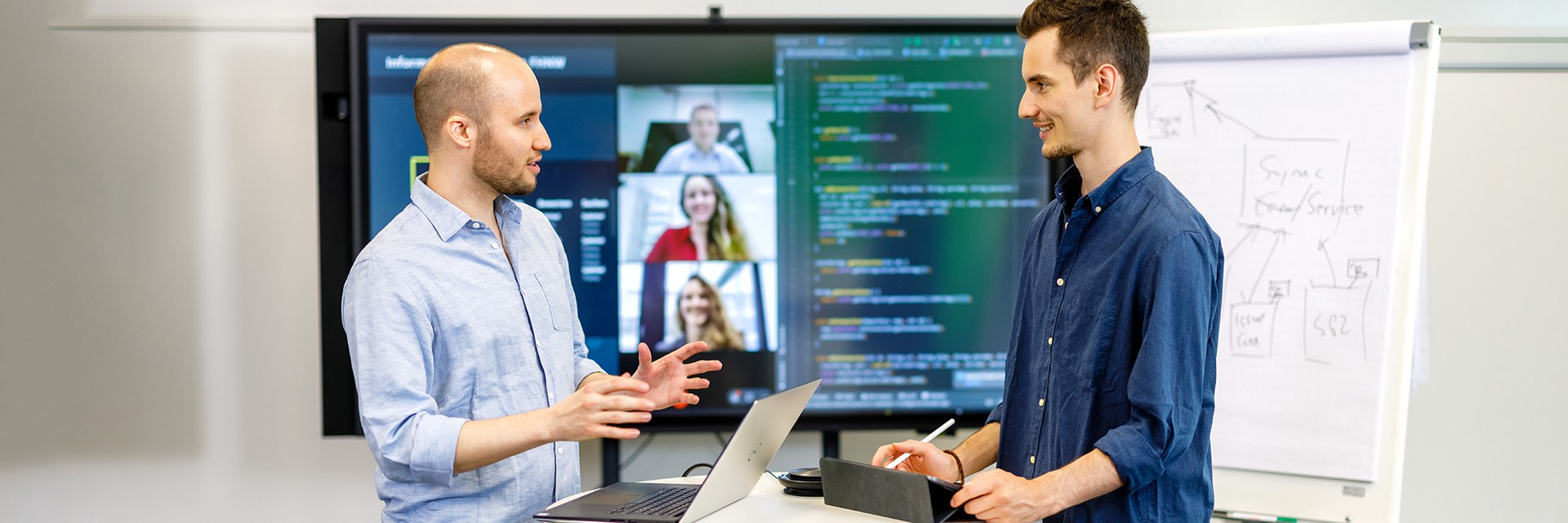
Spatial Computing
The liberation of computers from the limitations of immobile hardware offers incredible potential for future technological developments. In Spatial Computing, the machine is no longer bound to a single location or physical entity but integrates into our natural environment. Spatial Computing is a set of ideas and technologies that understand the physical world and know, communicate and navigate our relationships to places in this world.
Spatial Computing is a specialisation in the Bachelor of Science in Computer Science degree programme.
In the specialization Spatial Computing, students acquire skills in software development in the fields of extended reality, simulation, real-time computer graphics, human-computer interaction, physics and game development.
In addition, they learn to design systematic, efficient and aesthetically pleasing 3D UI systems. They develop an understanding of multi-linear storytelling for immersive applications and know the importance of spatial computing in relation to our society.
This enables them to be successful in the following fields of application with job titles such as Software Engineer XR, 3D Web-, or Unity Developer, etc:
- Virtual experiences in physical space
Interactive 3D worlds, rendered through a magic lens, display or projector, augmented content and the illustration of industrial processes
(Extended reality, simulation, games ...) - Virtual experiences in virtual space
The personal companion or assistant who exists in virtual space but can interact with people and react to events in the real world
(Virtual assistants, chatbots ...) - Physical experiences in physical space
Intelligent transport systems, indoor and outdoor navigation, localisation, spatial recognition, hardware that lives in real spaces and physically interacts with people and the space around them
(Autonomous transportation, robots, drones) - Physical experiences in virtual space
Process simulations, data visualization, digital training methods which can be physically experienced through haptic feedback and interaction
(Simulators, haptic applications ...)
